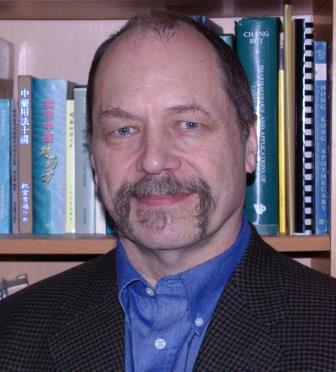
We rely on the skills of experts. The car mechanic, plumber, web designer, business coach. We want to trust the people that are in the position where our lack of knowledge leaves us vulnerable. We’d like for them to have our best interests in mind, and we also know from experience that we question the car mechanic’s assessment when they find more problems with our vehicle than we’d suspected. Most of us would like some kind reassurance that the person diagnosing the problem is trustworthy, especially when they stand to gain financially.
It can be difficult for the expert to have a clear-eyed view when their livelihood is based on finding and correctly problems. And because the expert is used to knowing their territory inside and out, they can be blind to new information that does not fit the metrics of how they usually operate.
The downside of being an expert is that our knowledge and sense of understanding can blind us to valuable information and give us a false sense of security. As acupuncturists we too are experts. Which gives us a level of skill that truly can help others. But at the same time we run the risk that all experts face of thinking we understand, when in fact we are ignoring vital information.
Listen into this conversation on the benefits and challenges of being an expert.

Kevin Ergil, L.Ac
I am a 62-year-old cisgender white male who has studied and practiced Buddhism since 1978 and Asian medical traditions for almost that long. I started my Tibetan medicine studies in 1980 and my traditional Chinese medicine studies in 1982. I received my NCCAOM certification in 1989 and my California License in 1990 and since then have practiced, taught about and run programs for learning TCM on both coasts. I say TCM because I think that’s a good term for what I do, but I’ve studied and used quite a few Japanese styles.
I am also an anthropologist and my work in the area of Tibetan Medicine and American approaches to Chinese medicine. Over the years I have been involved in the acupuncture research world and it is an area I teach in. I also work, study and teach in the area of “herbal” safety and drug herb interactions. Most of my clinical work for the last 11 years was at VA Medical Center treating intractable chronic pain and supervising students.
I’ve been married to Marnae Ergil (the smarter and kinder partner, and better acupuncturist) for 29 years, just about as long as I have had my California License. I have three children of whom I am ridiculously fond and proud. We have two cats who spent their childhoods behind a dunk in donuts. For the last 14 years we have lived in the City of Geneva next to Seneca Lake.
I am blissfully unemployed (semi-retired?) and working on consulting projects (clinical, educational, organizational, technology), books, teaching and other projects. Besides the areas I spoke about above I spend time studying and thinking about the impacts of culture, technology, and organizational systems of human beings. I am a “systems oriented” student of organizations and how the systems that humans arrange for themselves impact their experience in desirable and undesirable ways. This is all just more thinking about anthropology, administration, teaching, learning and tech in relation to human experience, but I like it.
A project that I’ve worked on as part of a big multi-disciplinary team since 2012 involves online pain integrative pain management education. This is a NIH funded on-line educational products designed for undergraduate education in the health professions (medicine, dentistry, pharmacy, physical therapy, psychology etc.). These products specifically address pain management from a multi-disciplinary perspective and provide a focused and dense 1-hour course supplemented with substantial additional materials. An example of this work and the platform can be seen here and it includes acupuncture https://cbl.rit.edu/~morgan/.
Right now, Kevin is rereading “The Fifth Discipline: The Art & Practice of the Learning Organization” by Peter Senge and reading “How Nature Works: The Science of Self-Organized Criticality”.
If you want to read a great book “Bad Science: Quacks, Hacks, and Big Pharma Flacks” by Ben Goldacre. The chapter on “bad stats” is particularly relevant to the “expert” podcast.
While this is hilarious to watch, it also gets to the core of how limited and fragile the world of an expert can be.